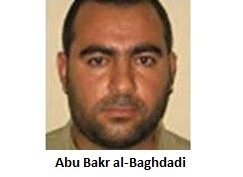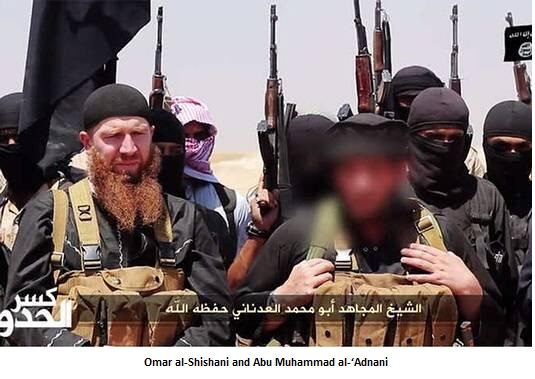Abu Bakr al-Baghdadi Hints at Anti-Russian Agenda

In his first message as Caliph, Abu Bakr al-Baghdadi highlighted an overlooked danger that foreign fighters pose to their home countries.
To date, the discussion regarding threats stemming from the deluge of foreign recruits into Syria focuses, justifiably, on the risks that the foreign jihadis will obtain military training on the battleground and return home as hardened fighters with the expertise needed to carry out attacks. However, Baghdadi’s July 1, 2014 address, “A Message to the Mujahideen and the Muslim Ummah in the Month of Ramadan,” alluded to a more subtle but equally dangerous avenue by which foreign participation in the Syria jihad can lead to violence at home.
In the 20-minute message, Baghdadi divided the world into two camps: one comprised of the mujahideen and the other consisting of enemies who engaged in worldwide attempt to oppress Muslims. Describing this duality, he announced that the two global camps are:
…the camp of the Muslims and the mujahidin everywhere, and the camp of the jews, the crusaders, their allies, and with them the rest of the nations and religions of kufr, all being led by America and Russia, and being mobilized by the jews.
The mention of Russia as the co-leader is curious. While Russia is never far from jihadi-produced lists of anti-Muslim forces, and many current jihadi leaders are veterans of previous struggles against the country, it has not recently been featured among enumerations of the most important enemy nations with the same frequency as are states such as the United States, the United Kingdom, and France.
While, Chechen jihadis have been fighting Russia for years, to date, their cause has been relatively parochial in appeal. Indeed, their struggle has been so underrepresented in jihadi sentiments that in a message released on January 24, 2014, al-Qaeda leader Ayman al-Zawahiri lamented that the Chechen fight against Russia has been an “ignored jihadi battle in Islam's northern battlefield.”
Against this backdrop, why then did Baghdadi name Russia as one of two co-leaders of a global war against Islam?
The answer may rest in the many first-hand reports from fighters in Syria that note the preponderance of Chechens in the region generally and within the Islamic States’ predecessor, the Islamic State of Iraq and al-Sham (ISIS). For example, writing on an Ask.fm account in May 2014, an alleged British ISIS fighter reported to his followers that “we have hundreds who came from or fought in the Caucasus,” where they have been “fighting the russians for centuries.”
 Not only are Chechens reportedly prevalent among Islamic State’s rank and file, but several prominent ISIS leaders are of Chechen origin, including Commanders Omar al-Shishani and Abu Jihad al-Shishani. The influence of the Chechen commanders appears to extend to the highest ranks of ISIS, now the Islamic State. For example, Omar al-Shishani, formerly the leader of the Jeish al-Mujahireen wal Ansar jihadi group, has been depicted leading ISIS fighters into battle and shown stationed alongside the official ISIS spokesman Abu Muhammad al-‘Adnani.
Not only are Chechens reportedly prevalent among Islamic State’s rank and file, but several prominent ISIS leaders are of Chechen origin, including Commanders Omar al-Shishani and Abu Jihad al-Shishani. The influence of the Chechen commanders appears to extend to the highest ranks of ISIS, now the Islamic State. For example, Omar al-Shishani, formerly the leader of the Jeish al-Mujahireen wal Ansar jihadi group, has been depicted leading ISIS fighters into battle and shown stationed alongside the official ISIS spokesman Abu Muhammad al-‘Adnani.Abu Jihad al-Shishani has also been shown representing the jihadi group in official ISIS-produced multimedia, such as in a video released by ISIS’ al-Furqan Media Foundation on February 26, 2014 in which he accused opponents of leading a conspiracy against ISIS.
The influence of Chechen militants may explain why, unusually, Baghdadi listed Russia as equal to the United States in threat to Muslims. It appears that as the influence of Chechen jihadi fighters grows on the ground, their displeasure with Russia is also being incorporated into Islamic State rhetoric, which is then broadcast out to the followers of the Islamic State and may soon become incorporated into the official jihadi platform.
In listing Russia as co-leading an alleged worldwide campaign against Muslims, Baghdadi illustrated a mechanism through which foreign fighters can increase the threat of terrorism against their home countries even before they return. While participating as part of a transnational battleground, foreign fighters have an opportunity to mix their own specific grievances in with those of their compatriots. This influence can then become incorporated into influential propaganda issued from the battleground, such as in today's message from Baghdadi.